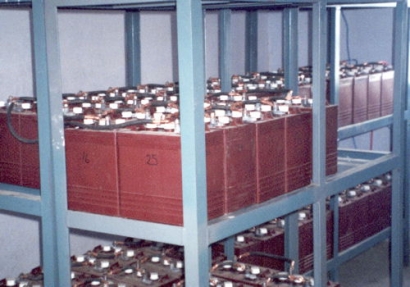
The study is based on work by an industry-wide consortium that includes energy storage firm Alfen and flexibility aggregator Peeeks. The report states that community storage can be both economically and socially viable. It further outlines a decision-making framework to help grid operators and other stakeholders identify and optimize business models and revenue streams for community storage in any market.
Decentralized energy sources such as rooftop solar panels or individual wind turbines are seen as an important part of the transition to a sustainable energy future. However, such resources put an added strain on the local electricity distribution infrastructure.
Distribution network operators can expand the capacity of their network with additional underground cables, but this takes a lot of time and money. An alternative is to install batteries close to decentralized resources to store any excess energy generated and feed it into the grid when demand exceeds supply. Regulations in most countries prevent the network operator owning these distributed storage solutions. Instead an independent player owns the battery facility and sells its capacity as a service to the DNO and other stakeholders.
The report identifies the conditions and stakeholders, such as home owners, energy retailers and network operators, required for viable community storage services. Furthermore, it shows that a multi-stakeholder approach brings benefits for all parties.
For DNOs, multi-stakeholder community storage solutions are a cheaper alternative to expanding the grid. Moreover, they can be installed and fully operational much faster than new grid capacity and with significantly less disturbance to the local environment and population. For parties interested in installing and operating community storage services, the study shows that long-term contracts are a commercially interesting option, potentially making it easier to find funding for new projects. Meanwhile, end users – whether residential, commercial or industrial – can be confident of a reliable and affordable supply of sustainable electricity.
“This is an important finding for the energy transition, showing that there is a fast and affordable solution for handling the intermittency of renewable energy sources that is also economically viable for everyone in the value chain,” said Ditlev Engel, CEO of DNV GL’s Energy business.
The study also outlines the factors that may hamper successful implementation. The findings are collated into a decision tree that can be used to determine whether a community battery solution is potentially interesting in any specific circumstances. Where community storage is a viable option, the decision tree can also be used to optimize business models within a multi-stakeholder approach.
For Information or to download the report: DNV GL

